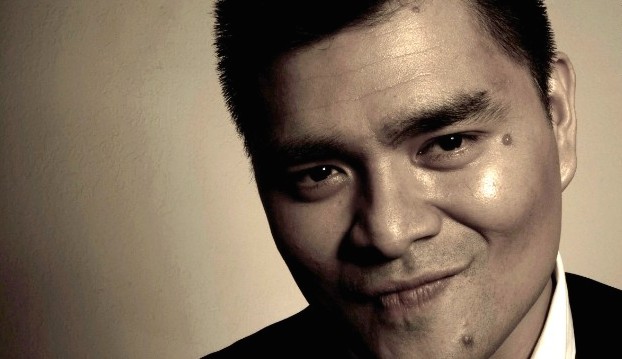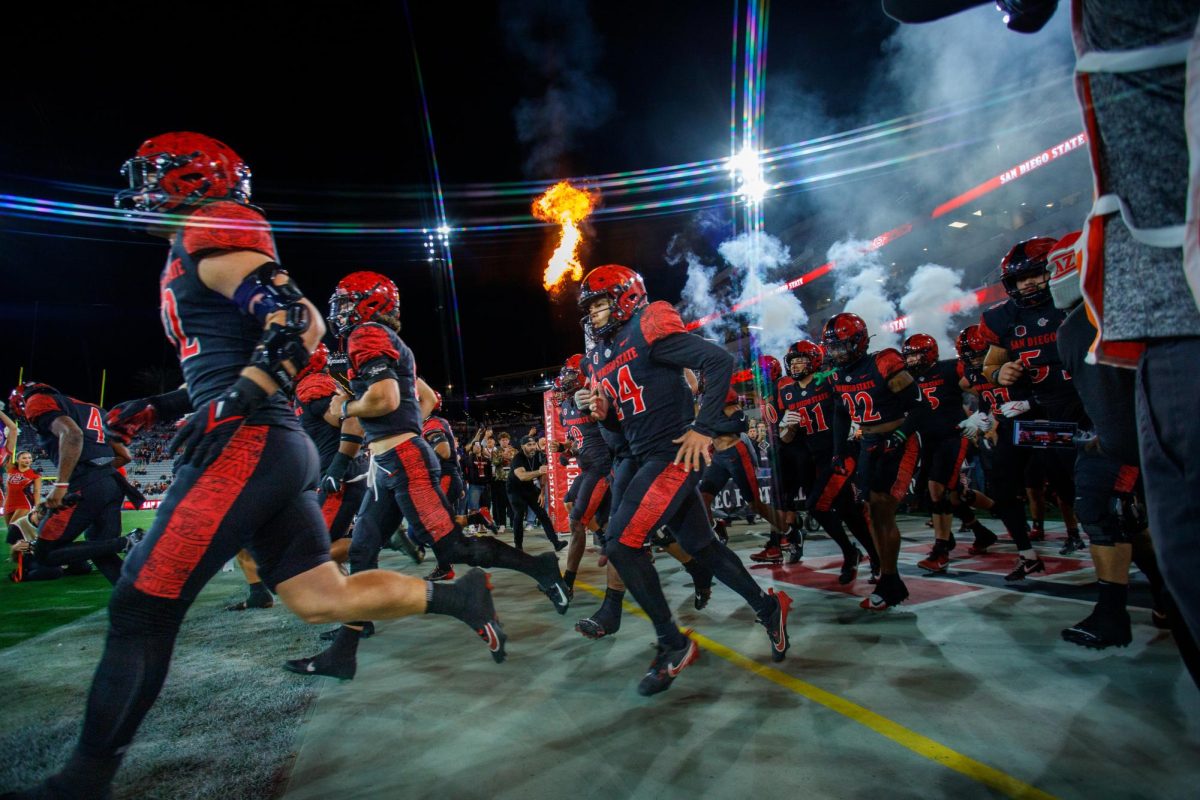In a time when the immigration debate is more heated than ever, Jose Antonio Vargas has been an outspoken leader and the voice for more than 13 million undocumented immigrants who live in the United States.
Vargas journeyed to San Diego State to give a speech at the Conrad Prebys Aztec Student Union Theatre on Sept. 29.
A journalist and filmmaker, Vargas has appeared in various media advocating for immigration rights.
He has been the face of the many people who live in fear of deportation to his or her home countries’.
“Culture is politics. You cannot change the culture of immigration, until you change the culture of immigration,” Vargas said.
The issue of immigration has long been at the center of Vargas’ life.
At age 12, his mother sent him away on a one-way ticket from the Philippines to the U.S.
At 16, Vargas rode his bike to the Mountain View Department of Motor Vehicles to get his driver’s license, where he first learned that his proof of legal United States residency was a forgery.Throughout his childhood, he never understood the sacrifice his mother made.
“I resented her, (but) I really understand now,” Vargas said. “She would rather give up her son to be sure that her son has a future. I’m trying to honor that.”
It has been 23 years since Vargas has seen his mother in person. Self-described as the “most privileged undocumented immigrant” in the U.S., Vargas wasn’t always so outspoken.
He was fixed on hiding his status until a five-day interview with Mark Zuckerberg prompted a change of mind.
“(Mark) asks me ‘Hey where are you from man?’ I didn’t want to remember where I was from, I was trying to assimilate,” Vargas said. “But when Zuckerberg asked me that question I said this is crazy, I need to stop.’”
In the following years, Vargas gained a fearless reputation.
He publicly came out as undocumented, against the wishes of his lawyers, while working for The New York Times.
Vargas then wrote a story in which he explored the question as to why he hadn’t been deported yet.
He went as far as to call United States Immigration and Customs Enforcement, who told him they couldn’t comment on his case.
According to CNN, U.S. Border Patrol agents detained Vargas at Texas’ McAllen Airport in 2014, as he was trying to pass through security on his way to Los Angeles.
Vargas was later released with a notice to appear before an immigration judge.
Vargas made appearances on the Bill O’Reilly show and the Kelly File, usually debating and trying to educate people on the issue of immigration.
In an attempt to disavow the myth in which undocumented immigrants do not pay taxes, Vargas sent a $48,000 check to the Department of Treasury, to show the IRS that he was willing to pay his taxes.
The check was cashed sometime after its delivery.
“Undocumented workers like me contribute $100 billion a year of taxes to the Social Security fund,” Vargas said.
His claim is confirmed by the Social Security Administration.
Traveling throughout the country, Vargas realized that there was a misunderstanding on the issue of undocumented immigrants.
“Is there any other group of people that we call illegals? When you drink and drive it’s called drunk driving, not illegal driving,” Vargas said. “The act is illegal, nevertheless the person is not. Being here illegally is a civil offense, so the words ‘illegal person’ are factually incorrect.”
For Vargas, words are not just words.
“They are actually dangerous, the words we use dictate how we think, and we actually act on them,” he said.
The word “illegal” carries a negative connotation and an inferiority complex against the person it is used to describe he said.
A student attending the speech asked Vargas whether the United States government were ever going to pass a law that recognized undocumented immigrants as Americans.
“No law is going to make you feel welcomed in this country,” Vargas said. “The only thing that is going to work, is if we see ourselves in ourselves.”
But his visit to SDSU was more about a message, than about his story and accomplishments.
His message involves support to the undocumented immigrant population in San Diego and in effect at SDSU.
“I would like to talk to the president, about why there isn’t a resource center (for undocumented immigrants),” Vargas said.
Dear Elliot Hirshman, president of @SDSU:
Can you provide a resource center for undocumented @SDSU students? https://t.co/fmNv0LXGWC
— Jose Antonio Vargas (@joseiswriting) September 30, 2016
For Adilenne Garcia, a Spanish senior and DACA student at SDSU, the resource center would mean a source of relief to fellow undocumented students.
DACA is an immigration policy which allows undocumented immigrants who entered the U.S. as children to be exempt from certain deportation laws.
“Many are afraid to ask for help, to come out of the shadows we’ve been living in because of fear,” she said. “But to have a resource center will give the message to our students that they are not alone and that they have someone they can open up to and seek help together.”
Vargas said there are approximately 300 undocumented students attending the university, although there may be many more who want to remain anonymous.
Despite being a 20.7 miles away from the border, there is no resource center on campus for undocumented students.
Carlos Rodriguez, a business administration junior and treasurer of Education Without Borders, describes his frustration with the university’s inaction.
“A lot of students don’t have the courage to reveal their status,” he said. “We try to bring that courage to students, and (we) bring awareness of the main issues, such as the lack of a resource center for these students. It has been a cat and mouse game, (the university) only provided us with a space, which we have to share with another organization, and if they decided that they need our space, they could kick us out.”
Rodriguez, was the main advocate involved in bringing Vargas to campus.
“I didn’t want to reveal my status not too long ago, but (Vargas) gives me the courage to stand up and be recognized,” Rodriguez said. “Especially now since immigration is an important issue in this election.”
In essence, immigration is one of the most important issues in this election.
Many undocumented students feel like they are at the mercy of politicians, as any immediate law can decide for or against their future here in the United States.
“I hate to think about all of these undocumented children in elementary, middle school, kindergarten, while someone (out there) like Donald Trump is running,” Vargas said.
Despite the long known anti-immigration stance that has been present in the Republican Party, Vargas urges the immigration issue not to be a political issue.
“Politicians are politicians, which mean they have to be elected,” Vargas said. “It’s important that we declare independence from any political party, and that people understand that immigrant rights is not a political issue. It’s a human rights issue.”
Vargas said he would like to live in a country where immigrants don’t have to rely on one particular party for their humanity.
There is one question that Vargas has been trying to answer throughout his career.
“What makes you an American?”
Vargas said he also questions when undocumented immigrants will “earn” the right to be labeled as American citizens.
“People say, ‘I was born here, I am a citizen,’ Vargas said. “Is that it? This is how the country become to be so great?”
Vargas sees his advocacy as a fight, One that aims to elevate and recognize a group of people who for long have been in the shadows.















